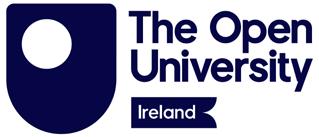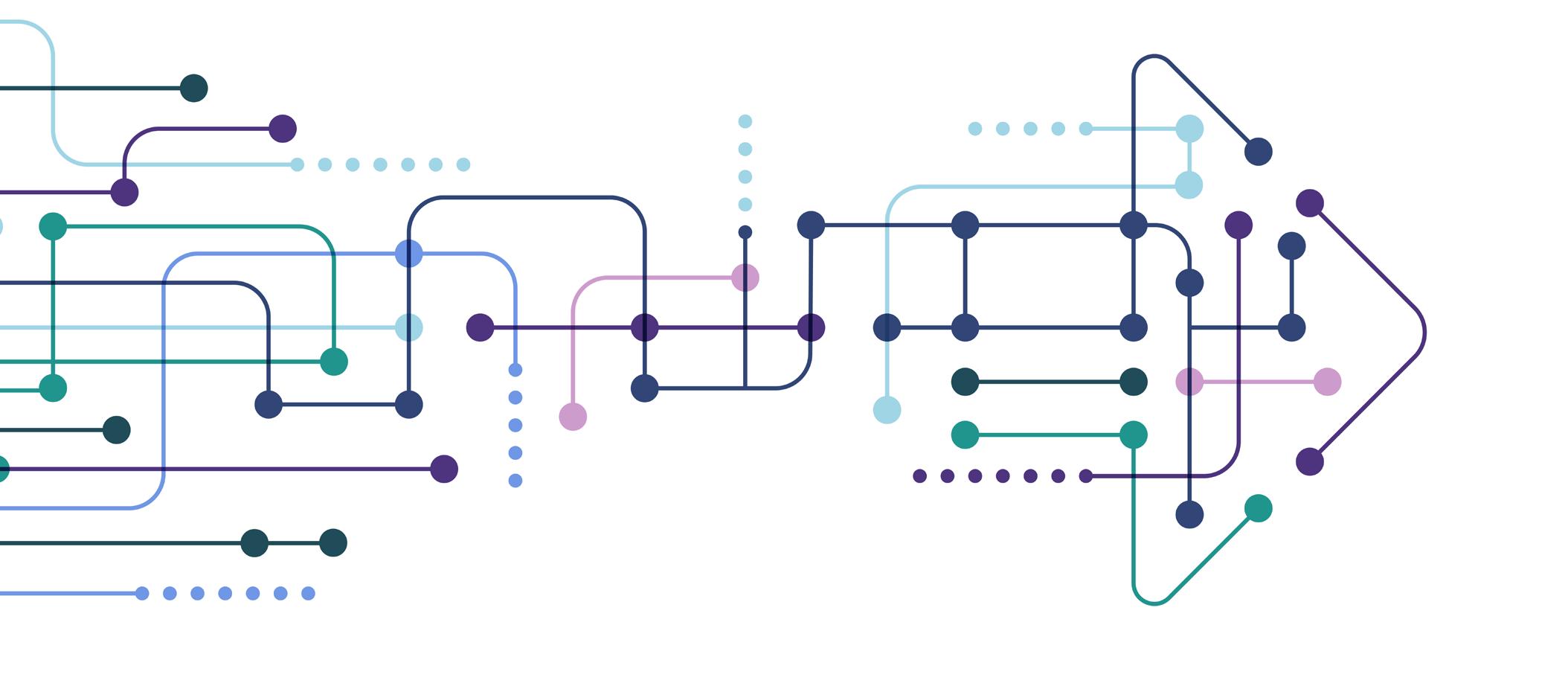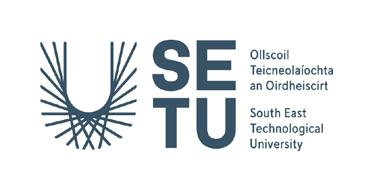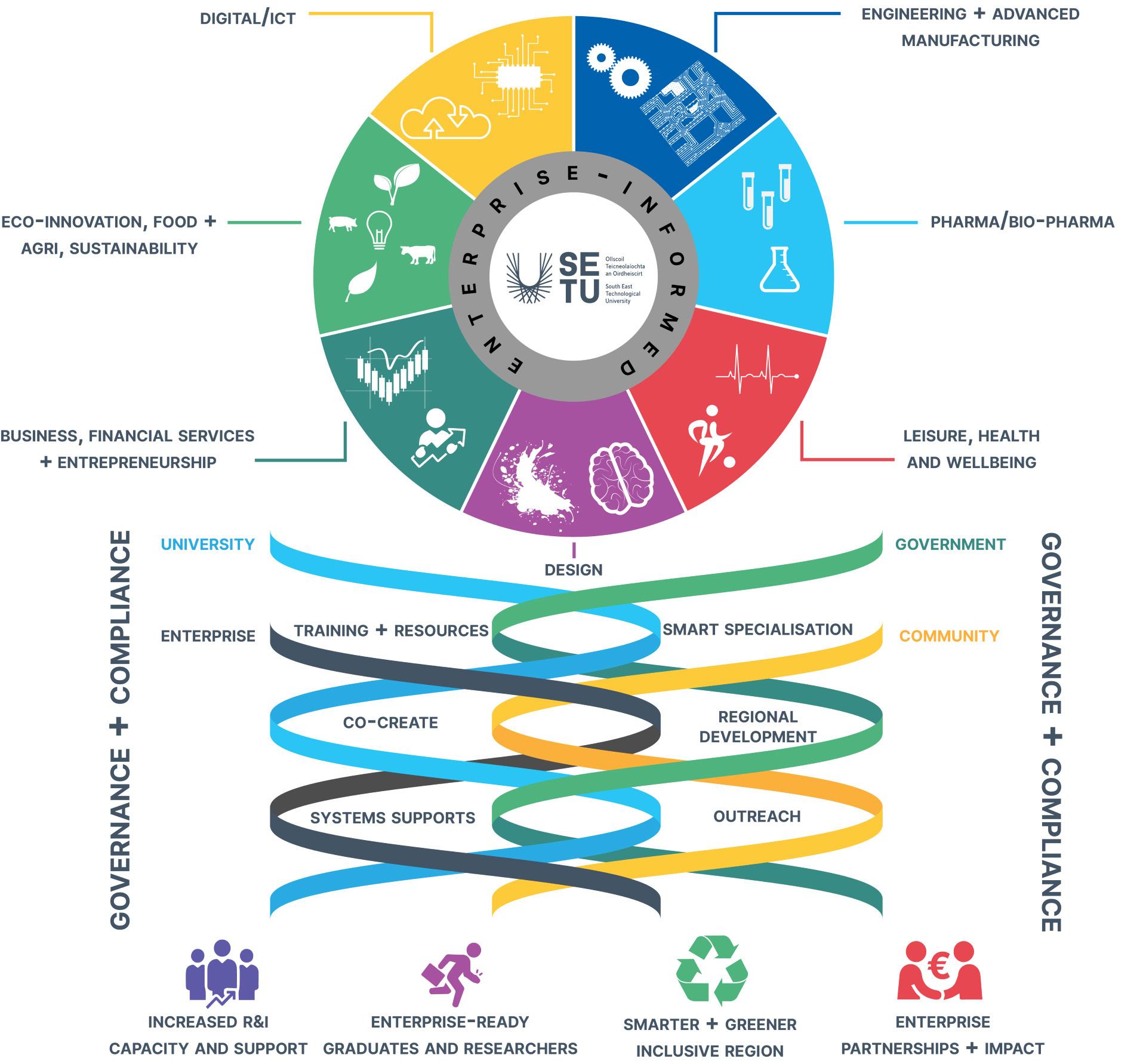






The digital skills shortage is not just an issue for Ireland. It’s a tight labour market, and there is a growing IT skills gap.
As Business Relationships Manager at The Open University (OU) in Ireland, I keep a close eye on the skills landscape in Ireland and the UK, and many challenges remain the same. Whether it is cybersecurity specialists or digital leaders, it’s tough to recruit suitable talent quickly and even harder to retain that talent.


How to tackle IT skills shortage
To succeed with digital transformation, organisations must adopt a lifelong learning mindset and offer relevant opportunities for staff to upskill and reskill into new digital roles. In this, the 2023 European Year of Skills in Ireland, now is the time to consider flexible training opportunities.

Promoting equity in access to education
A recent Aontas survey found that 65% of adults aged 17–64 in Ireland had participated in learning in the last three years. However, the caveat to this is that these learners were more likely to be younger, live in Dublin and have remained longer in formal education. This means many adults are missing out on learning and re-employment opportunities. That’s bad news for any business needing fresh IT talent. Equity is a key part of the OU’s social mission; we are committed to widening access to education by removing barriers to learning. We are well-placed to help both individuals and businesses that want to make that investment.
Our flexible, supported distance learning model allows students to study around their lives. Over 37,000 students disclose having a disability, and many are carers or juggling studying with a full-time job.
Microcredentials and short courses
Ambition doesn’t need to stop with a busy life. Access to flexible education can unlock lifelong learning opportunities — offering people the opportunity to reach their potential; inspiring learning and opening up education to all.
The OU is arming businesses with the skills to grow through our accredited microcredentials and short courses in business-critical topics, such as data science, software development, digital management and cybersecurity.
Continuous transformation of existing sites in Ireland has been key to the successful contribution foreign direct investment has made to the country.
IDA Ireland, the State Agency for attracting foreign direct Investment (FDI) to Ireland, continues to support its 1,796 client companies’ investment journeys long after companies establish a presence in the country. They have contributed €31.5 billion to the economy in 2021.
Driving recovery and sustainable growth into 2024
The DESI Index 2021 shows that Ireland is ranked as the fifth most advanced digital economy in the EU, and digital transformation continues to be a core economic policy issue in Ireland.
IDA Ireland’s strategy focuses on four elements of transformation as it engages closely with its FDI clients: innovation, digitalisation, sustainability and talent development. Driving forward in all four areas of transformation means that companies become more agile, resilient and responsive to the everincreasing needs of their customers, the changing environment and, crucially, to stay ahead of their competitors.
What is transformation?
Maureen Fox Business Relationships Manager, The Open UniversityTransformation is about making strategic choices that create change and growth in a business. Digital transformation is the process of using digital technologies to create new — or modify existing — business processes, culture and client experiences to meet changing business and market requirements. But this will not be possible on its own.
Companies need a level of innovation to create new or modified business processes, upskill and reskill their people to manage within a changing culture and ensure they have sustainable practices that meet and exceed customer expectations. The overall purpose is to be ahead of the competition internationally.
An online diagnostic tool to help companies get started
Firstly, IDA Ireland offers clients an online diagnostic tool that will determine where they are now and where they need to be on their transformation journey. Secondly, to bridge any gap, companies need to develop a transformation pathway that guides their journey over three years and generally includes investment in sustainable technologies and training of staff across the organisation.
Creating impact and supporting businesses long-term
The State Agency sees transformative investments creating more sustainable businesses, skilled talent and more innovative companies that grow successfully, supported by an excellent Irish infrastructure. The longevity of its clients is testimony to the ability of these companies to change and grow, with almost 50% of the 1,796 companies in Ireland for 10 years; and one-third — such as IBM, Oracle, Pfizer and Boston Scientific — in Ireland for more than 20 years.
Senior Project Manager: Kate McSwiggan kate.mcswiggan@mediaplanet.com

Senior Project Manager: Cian Raftery cian.raftery@ mediaplanet.com Business Development Manager: Lucy Harris Business Development Manager: Samantha Taylor Managing Director: Alex Williams Country Manager IE: Ross Bannatyne | Head of Print & Design: Thomas Kent Designer: Aimee Rayment Content
Editor: Angelica Hackett O’Toole | Head of Digital Operations: Harvey O’Donnell Paid Media Manager: Jonni Asfaha Social & Web
Editor: Henry Phillips Digital Assistant: Carolina Galbraith Duarte All images supplied by Gettyimages, unless otherwise specified | Contact information: uk.info@mediaplanet.com or +44 (0) 203 642 0737

Ireland needs IT professionals to achieve its digital ambitions. Their skills and expertise are essential to building a sustainable and secure digital future.
Ireland in the Digital Decade
In 2022, the EU adopted its Digital Decade policy programme which presents the EU’s commitment to a secure, safe and sustainable digital transformation across all member states. It outlines key targets for 2030, which include:
• 100% of key public services to be accessible online



• 80% of the population to gain basic digital skills
• 75% of EU companies to use Cloud/AI/ Big Data
• 20 million ICT specialists
Ireland has a highly skilled population of IT professionals, with 70% of people having basic digital skills and 6.3% of employees being ICT specialists. The percentage of graduates studying ICT in Ireland has also increased from 7.8% to 8.6%.
As the Irish professional body for technologists and IT professionals, ICS works to foster excellence, innovation and professional standards across the ICT profession in Ireland at every level. To strengthen Ireland’s position as a digital hub, we need to act on our commitment to promoting digital skills and IT professionalism.
Collectively achieving digital transformation
IT professionals and teams are strategic technology partners that play a vital role in digital transformation in any organisation. ICS brings together a thriving network of over 4000 IT and technology specialists from every sector bringing a wealth of shared insights and expertise to bear on the challenges and opportunities presented by emerging technology in cybersecurity, AI, and on the global challenges of sustainability and digital accessibility.
The expertise and accrued knowledge of the IT and digital professional community must be shared, captured, and leveraged to inform the digital transformation journey and meet the EU targets set out in the Digital Decade by 2030. The Public Service ICT Conference 2023, hosted by ICS and Public Service ICT Leaders on the 5th of October in Dublin Castle, will bring together public service CIOs, professionals, and teams at the coalface of digitisation of public services. This is an important opportunity to share knowledge, collaborate, and build momentum towards achieving our shared goals.
As Ireland begins to achieve universal connectivity, businesses must adapt to tap into the vast opportunities this interconnected landscape offers.
Ireland has been diligently building a robust digital infrastructure, aiming to provide high-speed internet to every home and business within the next three to four years. What does this mean for businesses?
Competency with universal connectivity

“Consumer expectations for digital access to businesses will become much greater,’’ says Paul Jevons, director at Analysys Mason. “Companies that aren’t ready are likely to face big commercial and competitive challenges. If you’re not able to undergo your own digital transformation, you are likely to lose out to the competition.”
Value of cloud capabilities


Cloud services are the backbone of the digital economy. It can scale as needed, allowing organisations
to adapt quickly to changing demands. It also enables real-time collaborations, data analytics and improved remote working.
“Cloud gives much greater reliability and accessibility. We can increase our capacity in line with demand rather than having to make big investments ahead of anticipated growth,” explains Patrick Kidney, partner and head of Ireland, Analysys Mason.


Ability to manage and use big data
As Ireland becomes universally connected, the volume of data generated will be huge. Businesses can derive valuable insights from this data treasure trove, helping to make better-informed decisions and enhance customer experiences.
“You need to understand what data you have and go through a process of bringing it into one place and






tidying it up,” Kidney says. “You need to think, too — if the future business model is digital, how many of our existing customers do we have the email address for?”


Handling cybersecurity


With better connectivity comes great responsibility. Businesses and government agencies must be prepared to defend against increasingly sophisticated cyberattacks. “It’s not just a technical aspect; staff will need training too,” Kidney insists.
Cybersecurity is also about developing robust contingency plans to swiftly respond and recover if a business faces a cyber threat.
“Businesses need to start thinking through, not only the increased preventative measures required by increased access and moving to the cloud but also the responsive measures,” Jevons says.








Planning for uninterrupted operations
Businesses need to consider implementing a gradual digital transformation to ensure minimal disruption and a smooth transition to a tech-savvy model while maintaining day-to-day operations.
“One of the biggest challenges of undergoing a digital journey is that it has to be done in parallel with running a business, which can be hard,” Jevons warns. “Identifying the appropriate ‘how’ is a key part of a successful plan.”
The expertise and accrued knowledge of the IT and digital professional community must be shared, captured, and leveraged to inform the digital transformation journey.Mary Cleary Secretary General, Irish Computer Society
Universal connectivity in Ireland will help businesses achieve uninterrupted growthPatrick Kidney Partner, Head of Ireland Analysys Mason
To respond to the challenges and opportunities of a digital economy, small businesses must have access to finance.
Irish micro or small businesses are currently operating in a rapidly evolving business environment, where embracing digital technologies has become increasingly important for competitiveness and to support the economy to transition to net zero. To create and support a digital transition, the small business community must have access to finance at each stage of the life cycle to succeed.

It remains the responsibility of the banking system to provide credit to businesses. Unfortunately, the withdrawal of KBC and Ulster Bank earlier this year, on top of unprecedented contraction since the credit crisis of 2009 — which saw the flight or closure of multiple business banks and non-banks — and rising interest rates will make accessing credit for small firms harder in the years ahead. In Budget 2024, the Small Firms Association (SFA) is urging the Government to focus on attracting new bank and nonbanking activity into Ireland to fill the credit gap.
Government-backed resources
In the meantime, there are several government-backed supports available to micro and small firms to improve the adoption of digital technologies, such as:
• The Local Enterprise Office, Trading Online Voucher Scheme is designed to assist small businesses with up to 10 employees to trade
Innovative, Irish-owned companies are economic cornerstones around the country, which is why it’s important to support them on their digitalisation journey, so they can achieve greater scale and expand their global footprint.
more online, boost sales and reach new markets. It offers financial assistance of up to €2,500 with cofunding of 50% from the business along with training and advice to help your business trade online.
• If you need funding for your business and cannot get bank finance, Microfinance Ireland may be able to help. Loans of up to €25,000 are available to support your business.
• SBCI offer low-cost finance to fund working capital and investments as well as flexible funding schemes including leasing, hire purchase and rental schemes.
• MentorsWork provides business owners with free upskilling in digital and automation, delivered by the SFA.
To scale and grow micro and small firms and allow them to respond to the challenges and opportunities of a digital economy, the Government must prioritise access to finance for indigenous small businesses. The SFA proudly represents a diverse membership of businesses with less than 50 employees: homegrown and spanning every sector of our economy. Our members can be found in every town and every city in Ireland.
For Enterprise Ireland, an important part of helping Irish businesses grow is supporting them to become more agile, productive, competitive and innovative. Globally, successful companies invest in their people, processes and systems to build capability, be competitive and drive higher performance across their business — and digitalisation has a key role to play in that.


We take a broad view of digitalisation — encompassing mindset, skills, process innovation, as well as technology adoption as part of an overall operational excellence journey for a company.
When we think of operational excellence, we are looking at key performance measures around quality, delivery and cost. An important question for business leaders to consider when reviewing this is: ‘Are we consistently delivering the right product, at the right time, at the right price?’ Other variables to consider are the adaptability and sustainability of the organisation’s operations.
It is always important to try to look at the business from your customer’s point of view. Consider whether you have done all you can to ensure that the customer gets the best service possible or if a digital solution could be used to enhance communication or automate some processes. Take time to consider the end-to-end flow in delivering a product or service and what technical systems could help.
When looking at layering technology solutions on your operations, it is important to be very clear on what problem you are trying to solve. Companies often delay action because they don’t know where to start or attempt to address too much at once. Companies must be strategic, and a good first step is often to integrate simple systems that can be connected together, rather than going for a complex IT system that promises everything but may be a challenge to implement and deliver. Modern cloud-based systems are designed to integrate, so this ‘digital plumbing’ approach may be the way to go.
Digital innovation is about redesigning your business to serve your customers better, and the most important first step is to have a deep understanding of their needs. Digital technologies can, ultimately, enable you to increase productivity, streamline your operations and deliver an excellent customer experience.
Digital transformation is key to preparing businesses for the future. For success, organisations must define their own personalised framework and implement solid change management.
Rapidly evolving technology is forcing companies to rethink and digitalise their business models. “The transformation story is about a business becoming digital at its core — not a business supported by technology,” says Terry Leech, Country Manager for Ireland at technology consultancy company Wipro.


Businesses must digitalise
The pandemic and its consequent influence on the office-to-hybrid shift have played a central role in the urgent drive for optimised e-commerce platforms within retail. To keep up with customer expectations across all industries, businesses must embrace digital-driven processes and technology investments. Those that don’t will be left behind.
“Businesses need to keep pace with changing technology to remain relevant. If people want their businesses to survive, then they must embark upon these processes,” says Nishant Dwivedi, Country Head for FullStride Cloud Services at Wipro UK and Ireland.

Preparing the groundwork for change
Companies must view transformation as a journey. Before embarking on this process, however, they need to lay down the groundwork properly to ensure change is managed effectively. That means having a clear sense of why the change is taking place. Leaders need to consider the ultimate beneficiaries of digital transformation (customers, employees and/or suppliers) as well as their organisation’s own digital maturity and economic stage (eg. surviving vs. running vs. thriving and disrupting).
successful digital transformation. “It’s an illusion that companies can follow someone else’s playbook and it will all come together and be perfect. That’s a fallacy because every organisation is different,” says Debecker.
It’s about the entire organisation
WRITTEN BY Sarah Brown“The effort it takes to do something like this cannot be underestimated. As a partner, we work with companies to navigate that journey. But there is a lot of work that they need to do themselves, too. It’s not something you can just buy off the shelf,” explains Jo Debecker, Wipro’s Head of FullStride Cloud.
Each digital transformation is unique Companies need to define what differentiates them from the rest. Once they know that, a bespoke framework can bring them the digital transformation they want to achieve. It’s not unheard of for companies to try adopting a framework because it worked for someone else — but that’s asking for trouble.
Similar to how two people would end up building completely different houses to suit their individual needs, a company must create its own model for a
A successful digital transformation needs to include the whole organisation — not just the IT team. “Organisations tend to be more successful when the whole business is aligned. If the change is driven purely from an IT point of view, it can work — but it won’t be as successful as when the entire business is brought in and coordinates together towards the overall change,” says Debecker. Strategy and vision are central to this. Above all, communication is key. This may require a change in leadership styles — from traditional to empowered and customer-centric teams. “The people that drive this from C-level must be of a certain mindset. If they’re not, organisations must make changes at that level to progress it. It’s hard news to take, but it’s necessary in the overall scheme of things,” adds Leech. Finding the right digital solution provider
Organisations that take the plunge to digitally transform their business will ultimately be more resilient, flexible and competitive. But it’s not a process to be taken lightly, warns Debecker. Organisations can streamline the kinks in the journey by adopting a one-stop-shop approach to their digital transformation.
“Companies could self-serve or get several suppliers to help them on their journey; but having one supplier and one point of contact who can do it all is a much easier process. It takes a lot of the legwork and coordination out of the process,” urges Leech.
Why the best digital transformation involves a bespoke process for each company
It’s an illusion that companies can follow someone else’s playbook and it will all come together and be perfect.WRITTEN BY Sheree Hanna
Construction and utility leaders are awakening to the benefits of digital systems and process automation that eradicate long-winded but necessary tasks.
While certain industry sectors may have lagged in harnessing digital platforms to create greater efficiencies, one service provider says they are seeing bigger appetites for it now.
Skillko, a training and compliance platform built for HSE leaders based out of the west of Ireland, only launched its first product in early 2019 and quickly secured its first 20 or so customers. Many are top Tier 1 construction and utilities companies. Within weeks, these customers effectively reduced their administrative time on training management by 85%.
Following that, they built a product for the onboarding and inducting of direct staff, then expanded those services to ensure the whole supply chain had staff competency and company compliance, alleviating many long-winded administrative and legal processes.
Customisable digitalisation support
Dermot O’Connor, Co-CEO and Co-Founder, says: “This year, we will be touching on having about 1,000 companies on the platform. It means hundreds of thousands of people have already been documented on our systems. It’s great scale and happened very quickly.”
As an indigenous Irish company, half the company’s staff are based in Ireland, with others from London, Lisbon and, more recently, a representative was assigned to Kuala Lumpur, Malaysia. It has also attracted contracts with


some big-name clients and is soon to announce a new contract with a large public sector utilities firm. Brendan Maloney, Co-CEO and Co-Founder, explains: “The way we are built means clients can just take one of our products, but we can also help them on their entire digitalisation journey if they take on the full platform.”
“From getting staff pre-vetted and approved to streamlining their whole competency and training management, along with the supply chain PPQ (product and process qualification) process, onboarding and inducting any new starters coming into the business all become very easy.” Moreover, Skillko wraps its technology with a customer-centric services model, which also allows clients to onboard effectively and get up and running quickly.

The next big digital transformation milestone is the utilisation of AI — one that the Skillko founders will be leveraging for their clients. “AI has become more accessible than ever, and we will have more generative AI, so our products will start to become an even smarter proactive assistant for EHS, supply chain and contract managers alike,” says O’Connor. “We have massive opportunities to scale our business both here and abroad; getting great feedback from our clients helps us with that roadmap,” concludes Maloney.


People may soon be able to access their health data digitally from anywhere in the EU through the European Health Data Space proposal.
Imagine you suddenly get sick while travelling in Europe. You visit a doctor, and your medical history and medications are available at the click of a button. Under a proposal by the European Commission, this vision is set to become a reality in the next five years. The European Health Data Space (EHDS) is a legislative proposal currently moving through the European Parliament.
Under this proposal, individuals will have access to their digital health data from anywhere within the European Union. Additionally, anonymised data will be available for research, innovation and policy-making so that scientists and researchers can help prevent, diagnose and treat diseases — and improve healthcare delivery.
The intended benefits could be numerous:
• Access to personal health information places power in the hands of citizens. Through technologies such as sensors and mobile apps, they can monitor their own health and see how improvements in lifestyle impact health status.
• Healthcare professionals can use data for more prompt diagnoses and to improve wait times across the system.
• Secure exchange of health data across borders enables evidence-based research into diseases from diverse
datasets, accelerating the pace of innovation into new treatments.
Although the benefits of the EHDS could be far-reaching, major obstacles exist. Each country is at a different stage of digital health record availability. Compare Estonia’s morethan-a-decade-old national Electronic Health Record with Ireland’s largely paper-based system.
For Ireland, a significant cultural change is required, transitioning from a focus on data protection to striking a balance between data protection and data sharing. Investment in digital technologies will be required, as well as upskilling our healthcare workforce.
Despite anticipated challenges, this could be timely for Ireland. As we embark on our digitalisation journey, we can learn from European neighbours that are further ahead on health data standardisation and management.
Ireland — as a hub for MedTech and pharmaceutical companies with a highly educated workforce and renowned academic institutions — could become a leader in innovation utilising health data, such as artificial intelligence.
Implementing the EHDS requires significant changes to healthcare delivery, so it is time to plan our response now. By playing our part, we can contribute to potentially life-saving health data for patients in Europe.
Effective implementation of digitalisation requires a greater degree of collaboration, which is an environment that needs to be fostered through the contractual framework.
On 4th July, Ministers Donohoe and Smith announced the timeline for the Building Information Management (BIM) adoption on Public Works Contracts, which will take place over a four-year period.
Digitalisation projects emerging
Digitalisation has been formally under discussion within the CIF since 2016, and much has been done through collaboration with the Government’s Construction Sector Group and other industry bodies. We have seen sector-specific services put in place including Build Digital, which will offer support to the industry; Construct Innovate, which is a construction technology centre; and the commencement of plans for a Demonstration Park for Modern Method of Construction, which will focus on off-site manufacturing, particularly in terms of meeting the demands of the Government’s Housing for All policy.
The CIF membership consists of companies ranging from large companies operating on an international scale to small, family-run businesses; each is on its own journey in terms of digital maturity. There are contractors who, through their involvement with Foreign Direct Investment companies, have realised the inherent benefits of digitalisation for many years. There are also SMEs that are digitally advanced, with their size proving to be a strength due to their agility to respond to market requirements. A primary concern is ensuring that, overall, SMEs and the supply chain are not left behind and that they are adequately supported and resourced.
Effective implementation of digitalisation requires a greater degree of collaboration, which is an environment that needs to be fostered through the contractual framework. On the public works side, CIF looks forward to continued improvements to the Capital Works Management Framework. Sustainability requirements are adding an even greater level of complexity to the digital landscape with a requirement for BIM technology to incorporate carbon counting and whole life cycle costs. This ultimately requires a change in tendering processes to focus on quality rather than the lowest price. Implementing and requesting these requirements is no easy feat for contracting authorities, which now more than ever stand to benefit from increased collaboration with industry to produce the infrastructure assets outlined in Ireland’s ambitious National Development Plan. Effective digitalisation requires a sophisticated client who understands, at the very outset, what they are trying to achieve. While much has been done, there is still more to be achieved.
Denise Tuffy Specialist Contracting Executive,The power of the cloud can drive business enterprise and growth. However, its capacity to transform public services and deliver benefits to Ireland has largely been ignored.
In 2021, the Department of Public Expenditure and Reform announced that by 2030, 90% of applicable public services should be delivered online.
Why Ireland should take a cloud-first approach
Recently, ‘Harnessing Digital: Digital Ireland Framework’ (a national digital strategy) and ‘Connecting Government 2030’ (new public sector ICT strategy) indicated that this goal would be reached by ‘taking a cloud-first approach to the delivery of all services.’ This strategy recognises that cloud computing can generate significant benefits for the public sector.
A high-level cloud-first vision is useful to set expectations, but effective adoption requires vision, strategic case, policies and guidance to be aligned within a cloud-oriented culture. Even in countries that have implemented a clear top-down cloud-first vision (eg. the UK, Australia, Germany, Greece), experience has shown that the buy-in of senior leaders and decision-makers, IT departments and procurement officials is key to a successful transition.
Despite this cutting-edge technology on our doorstep, the public sector has been slow to harness reforms. Moving to the cloud would have deep cybersecurity, sustainability and economic advantages, as well as improve the fundamental quality of public services.
Recently, Technology Ireland commissioned a report — The Sky is the Limit — that highlighted a 10% increase in public sector cloud adoption could produce economic benefits of €473 million annually. Through greater cloud usage, the public sector would reduce its information and communication technology (ICT) energy usage by 80%.
Other jurisdictions show that cloud adoption by public bodies delivers a myriad of advantages for end-users. There are especially strong cybersecurity and sustainability benefits to be achieved through heightened Irish public sector cloud use. In January 2023, the Office of Government Procurement established an infrastructure as a service (IaaS) framework, and the initial steps are welcome. Government and industry are fundamentally aligned on the rationale and purpose of creating a framework that will aid the digitalisation of public services. Without a centralised procurement framework, the Government’s longstanding cloud-first commitments will be difficult to achieve.
In an increasingly integrated and digitalised world, the importance of reliable connectivity and robust backup solutions for businesses cannot be overstated.
As businesses increasingly rely on digital communication tools and cloud services, connectivity has never been so important. This digital revolution has highlighted a critical need for robust connectivity, dependable backup solutions and greater data-processing capacity.
“Since companies returned to the office last year, we’re seeing a significant shift in bandwidth usage across our network as businesses expand their capacity to meet their needs,” says John Delves, Managing Director at Magnet Plus.


As the reliance on digital infrastructure has grown, so has the awareness of the potential pitfalls. The necessity of having a backup connection has come to the forefront, which means having a dependable option that can seamlessly take over in the event of any disruption to the primary connection. A recent survey from Magnet Plus revealed a glaring gap in preparedness, with up to 80% of Irish businesses lacking a backup solution.
“Businesses shouldn’t have a basic residential type of broadband product because if that goes down, think about the productivity impacts. Think about the reputational impacts. Think about the customer experience. It’s essential to build a suitable connectivity solution, no matter how big or small the business is,” says Delves.
“For example, if a retail chain loses connectivity and doesn’t have a backup for their primary connection, then they will lose the ability to take payments, especially now with so little cash being used. It’s lost business,” he adds.
Surge in demand for more bandwidth
The demand for connectivity and backup solutions is only going to increase across all industries, both to improve business efficiency and to meet regulatory requirements. “The trend continues to grow, and what happened in the last few years just continues to build and accelerate. As solutions become more sophisticated and products become highly engineered, businesses need more bandwidth from companies like us. It’s a never-ending demand,” concludes Delves. “We’re planning ahead and have the sufficient capacity and services across our core network to meet this demand.”
John Delves Managing Director, Magnet Plus WRITTEN BY Sarah Brown Gillian O’Keefe Technology Ireland Executive, Ibec

Why digital transformation in the construction sector is a work in progress
Construction Industry Federation
Organisations can innovate in all areas of the value chain to identify new or better ways of doing something. This process of idea generation to create new or added value is called innovation.
An innovative approach is normally used to address a specific goal, need, challenge or opportunity. To innovate, companies need a process to generate new ideas, evaluate these ideas and select the best ones to progress.
If a process of managing ideas is not in place, then how will the best ideas be implemented? Fundamentally, innovation is crucial to company transformation. Organisations can build innovation capability and talent which, in turn, can and does lead to new and added value such as increased customer engagement channels, expanded brand awareness or increased digitised and streamlined processes.
Most companies grapple with innovation and often confuse it with research and development. The difference is that the latter is a technical activity focused on the development of an organisation’s offer, whereas innovation spans the whole of an organisation — creating new ideas in all parts of the business.
Innovative companies can manage uncertainty and find new and better ways to solve problems and address business downturns. This agility to respond to change and uncertainty builds resilience across an organisation — enabling it to maintain and grow sustainable operations.
Innovation needs to be stimulated and encouraged by organisations. The best way to achieve this is by managing clever ideas and solutions as they occur and by creating an innovative mindset and culture within the organisation. IDA Ireland, the State’s agency for attracting foreign direct investment to Ireland, provides support to encourage greater engagement and focus on innovation as a key building block to transformation.
Based on the Innovation Management Guide Standards developed by the European Standard Development Body, the ‘Innovation Scorecard Diagnostic’ was developed to encourage companies to assess their current innovation maturity level and identify the target level they want to achieve. From this, support is provided to companies to develop innovation skills like creativity, problem-solving, idea generation and communication.
The DTPP - Disruptive Technologies Partner Portal is a collaborative space where companies based in Ireland can promote, source or partner for disruptive, digital and sustainable technology solutions. This portal originated from a partnership between Enterprise Ireland and IDA Ireland. This is a unique way for companies to come together, share issues and source solutions in a collaborative and innovative way.
In periods of industrial, economic or technological transition, early movers gain a competitive advantage. The twin green and digital transitions are two of the most pressing challenges facing business today.
Since taking office as Minister for Enterprise, Trade and Employment, I have prioritised helping businesses adapt to the new landscape and seek out opportunities for growth.
digitalisation with our rich ecosystem of multinational and indigenous technology companies. We must harness the expertise within these companies and academic institutions to its fullest.
Simon Coveney TD Minister for Enterprise, Trade and Employment
This ambition is woven through my Department’s White Paper on Enterprise, which identifies the key priorities to protect Ireland’s strong economic position and response to new challenges and future opportunities.
The transition to a low-carbon economy is the industrial revolution of the 21st century; the benefits are not only lower emissions but better jobs, warmer homes, cleaner air, cheaper and more secure energy and a resilient economy.
Climate action should not be seen as a burden for businesses but an opportunity to be seized. We must position Ireland to capture all the value we can in our decarbonisation journey, particularly in relation to offshore renewable energy and the industries that are best suited to develop alongside it.
Advancing the digital journey will help businesses reduce costs, ensure competitiveness, improve innovation, and provide high-quality jobs across the country.
Ireland has a strategic advantage in terms of
My Department’s Building Better Business events across the country aims to help businesses navigate their green and digital journeys. Government offices and agencies attend to provide advice on the range of support available to businesses.

As a small, open economy with a limited home market, businesses can access international markets through Free Trade Agreements, which are vital for SMEs and the wider business community in Ireland seeking to grow.
As an EU member state, we are fortunate to be part of the EU network of Free Trade Agreements, which is the largest in the world. This undoubtedly is a major asset in keeping markets open and helping Irish companies reach new markets and thrive.
These agreements are more important than ever as disruption to trade and supply chains as a result of Brexit, the COVID- 19 pandemic, and more recently the war in Ukraine, highlight the importance of rules-based open trade, shared values and finding alternative opportunities to keep trade flowing.
Investing in innovation for a company involves investigating more costeffective production practices, new materials and novel approaches. However, while many companies seek to innovate, they often do not have the time or expertise to invest significantly in innovation because of day-to-day operational challenges.
Gateways providing business solutions
with industry on European projects, brings in partners, co-funds PhD education, connects with research and development facilities, hosts startups in its incubator, identifies funding opportunities and has programmes to highlight and address skills gaps.
and change for the region. That includes growing its population of PhD students to 400 and increasing the value of enterprise research agreements by 30% before 2028.
WRITTEN BY Mark NichollsIn the south east of Ireland, organisations ranging from startups and SMEs to multinational organisations can be supported to innovate by tapping into a range of training programmes, state-of-the-art facilities and a wealth of knowledge and talent at South East Technological University (SETU), which has campuses in Waterford, Carlow, Wexford, Kilkenny and Wicklow. Its Technology Transfer Office (TTO) acts as the bridge between industry and academia by applying knowledge and innovation from research to support firms in the region, understanding the issues and challenges they face and offering practical solutions.
In partnership with Enterprise Ireland, SETU has established four Technology Gateways closely aligned to the regional manufacturing and business landscape to help foster the commercialisation of technologies that emerge from research and provide the kind of innovation that can help businesses.



Regional priority areas
The Gateways — Design+, PMBRC, SEAM and the Walton Institute — cover areas of advanced manufacturing and Industry 4.0; ICT; life sciences and pharmaceuticals; sustainable agriculture, ecoinnovation and food-tech; and financial and business sectors.
Richard Hayes, Vice President for Strategy, explains: “Our research approach is to be closely aligned with the regional need and very focused on supporting regional development.” The TTO and regional businesses are brought together via networking events, conferences, EXPOs, roadshows and social media. However, companies outside those priority areas are not excluded from TTO support. The TTO also provides consultancy services, collaborates

Helping companies grow Technology Transfer Manager Sudeepth Nair, who is responsible for converting research outcomes from the university’s programmes into commercial outcomes to benefit business and industry, explains that organisations collaborate with SETU at various stages of the innovation process — from early-stage ideas to accessing their existing commercially valuable research outputs.
“We are here to make the right connections. It is often challenging to navigate the innovation ecosystem at any academic institution. The TTO connects businesses with the right resources and domain experts, to help advance their research and support their innovation activities by implementing our research-based knowledge,” explains Nair. “We can help across all sectors and help them advance their technologies forward to commercialisation.”
Contributing to regional growth

The University’s strategic plan, ‘Connecting for Impact,’ outlines its mission to lead innovation

In addition, a high-profile expression of the university’s ambition and commitment to the region’s economy has seen the creation of the University-Enterprise Quarter co-locating industry, education and research activities on the site of the former Waterford Crystal site in Waterford city.
Access to modern innovation and expertise
Hayes underlines adding value for the region. “In the 21st century, if you are not innovating, you are going backwards,” he says. “However, companies do not typically have the internal capacity to be innovators because they are busy running the business, so they need to plug into SETU to access expertise, cuttingedge thinking and technology.
“By elevating economic performance and retaining talent in the region, we can contribute to and make an impact on the regional economy, society and culture, creating sustainable high-end and high-quality jobs.” Over the next four years, they aim to grow and offer a more seamless transfer of knowledge to industry by supporting social and economic development.
Modern businesses must continuously find innovative solutions if they are to grow sustainably while minimising costs — and partnering with a university is one way to do it.
Richard Hayes
VP for Strategy, SETU
Small and micro firms are increasingly competing in a global economy. To stay ahead and remain competitive, business owners must drive innovation across their practices.
In addition to boosting productivity and developing new products and services, embracing innovative systems will attract talent and retain staff through skill enhancement, support a company’s transition to a low-carbon enterprise and pursue growth by being competitive.

Access to innovation and finance
To be innovative, micro and small business owners must be supported by the economic environment and enterprise policies that reward entrepreneurs — and do not create barriers. Small business owners must have access to finance to take advantage of innovative opportunities.
Unfortunately, our research shows that Irish small business owners continue to be cautious when it comes to accessing external sources of funding. With both Ulster Bank and KBC having left the Irish market, entrepreneurs seeking finance now have fewer options. To continue to build a resilient and sustainable small business community, access to bank and non-bank finance for small businesses must be improved.
Cost challenges and finding support
Ireland’s micro and small enterprises are facing cost challenges in every area of business — including labour, transport, insurance, banking and utility costs. While many costs are outside the business owner’s and Government’s control, not all are.
For business owners to focus on innovative technologies, the Government must take firm action to reduce the costs they impose on the economy. To drive innovative processes and practices in small businesses, we need a tax system that encourages R&D and investment in scalable organisations.
As we approach Budget 2024, Small Firms Association (SFA) is seeking such changes. Having skilled and experienced staff — and being a skilled and experienced ownermanager — is crucial to understand the value of innovation. To support entrepreneurs and their staff, SFA Skillnet, MentorsWork, provides bespoke guidance, advice and mentorship with a particular focus on innovation to improve business processes and practices.
For small firms to be a leader rather than a follower in innovation, SFA will continue to advocate for better access to finance, enterprise policies and easily accessible support for Ireland’s small business community.
WRITTEN BY David Broderick Director, Small Firms AssociationIreland has a robust and dynamic research ecosystem that fosters collaboration between higher education institutes and local industry via its thriving network of 17 Technology Gateways.
Powered by cutting-edge technologies and expert knowledge, the Technology Gateways serve as a vital link between business and academic expertise, providing a platform for companies to access state-of-the-art facilities, research capabilities and specialised knowledge.
Technology gateways offer industry solutions
Run by Enterprise Ireland in partnership with the Technological Universities and Institutes of Technology, the Technology Gateway Network boasts an ability to cater to a wide range of industry sectors. Whether it’s manufacturing, engineering, healthcare, agriculture or renewable energy, the Gateways offer tailored solutions to address specific industry challenges.
Examples of company success
Companies across Ireland are benefiting from the expertise and experience available within this nationwide network to assist in the delivery of nearto-market solutions. For instance, family building company Keenan Timber Frame in Dundalk worked with the CREDIT Technology Gateway in Dundalk Institute of Technology to identify more sustainable materials for use in their timber frame homes. Cotter Agritech has developed an awardwinning sheep-handling crate set to revolutionise the way sheep farmers dose, vaccinate and treat
sheep. Cotter benefited from engineering expertise at the PEM Technology Gateway in ATU Sligo to make significant product improvements.
Enhancing competency for Irish businesses


The impact of Enterprise Ireland’s Technology Gateways on Ireland’s economy cannot be overstated. By supporting businesses — particularly small and medium enterprises — in their innovation journey, the Gateways contribute to job creation, act as the research and development arm of small companies and increase economic growth. Moreover, its collaborative nature encourages knowledge transfer, upskilling of the workforce and the development of a highly skilled talent pool that ensures Ireland remains a competitive player in the global technology landscape.
Since it began operating in 2013, more than 4,900 companies have together spent €60.5 million, completing over 7,770 research and innovation projects. They are fundamental to promoting the ongoing development of research, development and innovation (RD&I) within companies that may lack the facilities, equipment, personnel or expertise. They are poised to remain a driving force behind Irish innovation and collaboration for many businesses into the future.
Mark Whelan Technology Gateway Programme Manager, Enterprise Ireland
Its collaborative nature encourages knowledge transfer, upskilling of the workforce and the development of a highly skilled talent pool.
To address future needs, from personalised medicine and quantum technologies to food security and the digitalisation of public services, cross-sectoral collaborations are required.
For over two decades, through its stewardship of public funds and rollout of a suite of supports and programmes, Science Foundation Ireland (SFI) has helped to cultivate a globally competitive research and innovation ecosystem.

Anticipating and addressing future needs
Bringing academia, government agencies and industry together to an unprecedented extent has enabled this ecosystem to anticipate and address future needs. These needs have been met through the development of new knowledge, talented individuals, strategic investments and support for cross-sectoral research collaborations.
Researchers are tackling the most pressing societal, economic and environmental challenges. The latest international rankings reflect Ireland’s research impact: First in the world for knowledge diffusion and sixth for university-industry R&D collaboration (Global Innovation Index, 2022); second for agricultural science; fourth for immunology and neuroscience and behaviour; sixth for microbiology (InCities by Clarivate Analytics).
In 2022, from an initial base investment of €213 million, SFI delivered significant value for money, leveraging €267 million in external funding (up 14% in 2021) and €163 million in non-exchequer funding. Its network of funded research activity is truly international, comprising 5,800 academic collaborations with 87 countries (representing over 70% of its total funded partnerships).
Businesses in Ireland must innovate using digital technologies and automation to optimise business processes and gain a competitive advantage globally.
Digital technology improves efficiencies for businesses, but information technology (IT) experts fear some companies are in danger of falling behind. Worst affected are organisations burdened with large technical debt as they try to digitally transform.

Justin van der Spuy, co-CEO of Saros Consulting, notes that younger companies ‘born in the cloud’ have an advantage over more established competitors, as they are more agile and have no legacy systems. Saros Consulting provides independent IT advice and project management services and is seeing a growing demand to digitise and automate business processes.
Partnership programmes
Highlighting academia-industry engagement’s importance, the Industry RD&I Fellowship Programme 2023 facilitates temporary placements of researchers with an industry partner worldwide. A valuable stepping stone for academics into commercial environments, these mutually beneficial placements incorporate knowledge exchange, skills development and collaborative research. Similarly, the Public Service Fellowship programme temporarily assigns researchers to government departments and agencies for specific projects. The 2023 programme involves 42 projects and 18 government departments and agencies, promoting innovation and advancing evidencebased approaches within our public sector.
The Government’s ‘Impact 2030: Ireland’s Research and Innovation Strategy’ seeks to maximise research and innovation’s impact on many national priorities. One key strategy initiative therein is amalgamating SFI and Irish Research Council in 2024 into a new agency to drive world-class research and innovation across arts, engineering, humanities, mathematics, science, social sciences and technology.
We’re living through a period of profound change and challenge as the world faces a climate crisis. Working with colleagues in Higher Education Institutions, government departments and agencies, we’re well-positioned to attract, develop and retain the talent and knowledge to positively impact our societal wellness, economic performance and environmental resilience.
technology’s sake.’
“Innovation and digitisation need to be at the forefront of an IT strategy,” says Armstrong. “But the driver has to be the business strategy which is then enabled by utilising digital technologies to support innovation.”
Ray Armstrong, co-CEO says: “Since 2020, businesses have been forced to embrace digitisation, and many companies, such as retail, have had to strategically change. They had to innovate quickly, setting up online and transforming their supply chain.” Saros works with several large pharmaceutical clients, who are seeing changes in the industry. “The advances in cell therapy and biologics are at the fore in this industry; these advances require underlying innovative digital technologies.”
Effective digital transformation strategy
Formed in 2016, Saros — who combine strategic thinking with strong project delivery — underlines the strategic value of digitisation and other technologies but does not believe in ‘technology for

His company focuses on the business case for digital transformation and delivers that transformation through consulting and project management. When clients look to automate their business, van der Spuy explains that his company identifies technologies, works with vendors, and delivers projects to budget and timescale.


Preparation and understanding consumer demands
They also warn of consequences of failure to embrace technology
“Digital means different things for different people,” says Armstrong. “Before an organisation embarks on its digital journey, it must have underlying technology, governance, project management and enterprise resource planning at hand.”
He emphasises that businesses should know how their product or service is being procured or consumed, warning that customers can “drop a product and move on very fast” in the current competitive landscape.
 WRITTEN BY James Martin
WRITTEN BY James Martin
In today’s world, it takes a significant amount of innovative thinking to deliver the right healthcare solutions to match patient needs. At Viatris, a global healthcare company, its commitment doesn’t stop at manufacturing high-quality medicines, it extends to its Global Device Development group based in Dublin. This dynamic team has the responsibility for end-to-end development and commercialisation for device and combination products, including pens and auto-injectors, inhalers, as well as complex and branded generic drugs.
The device development organisation is a growing team focused on the design, usability, engineering, verification and commercialisation of a diverse portfolio of device technology solutions. Progressive thinking and deep-level engagement are core qualities in developing device technologies, considering the complexities involved.
Róisín Wallace, who established the Device unit at Mylan and based on its success, has recently stepped up to lead Global Regulatory Affairs at Viatris, says: “When looking at bringing complex products to the market — whether with challenges from socioeconomic, patents or regulatory — we continually have patient needs at the forefront of our mind. Our development process includes talking to patients, caregivers and healthcare professionals to ensure our devices are accessible to patients for safe and effective use.”
Combining generics and brands Viatris may be just two-and-a-half years old, but its ‘legacy’ companies span over a century and together have formed a unique platform to deliver for patients. The company was formed to bridge the traditional divide between generic and branded medicine, combining the best of both, to more holistically address healthcare needs globally.
One unique feature of the company’s Irish workforce is the linkage between R&D and manufacturing, such as new device development supporting the new establishments of the Respiratory facility in Dublin and complex injectable drug-device products – a prime focus for the Galway plant. Its in-country presence extends to manufacturing in Cork (active pharmaceutical ingredients) and Dublin (oral solid dose), as well as Dublin-based operations and commercial hubs where several global leaders reside.

Patient reach serves local and global
Behind an extensive portfolio of products across a broad range of therapeutic areas, the organisation prides itself on delivering significant value to Health Service Executive (HSE) and for patients everywhere. The company is one of the leading suppliers of medicines in the Irish pharmaceutical market.
“One benefit of having a large workforce in Ireland is our connectivity. For example, our global device and global supply teams are in the same building – and all four Ireland sites are no more than three hours apart, meaning we can quickly
connect, voice the needs of patients and contribute decisions that address healthcare needs locally and around the world,” Wallace adds.
Finding the right people for the job
Wallace believes having diverse teams is essential to improving the health and wellbeing of the communities it serves. This means being able to work in an environment where your unique background and perspectives are valued.
To that end, they value innovative skills and capabilities. “We hire and train, intentionally seeking out candidates who have the diverse capability and enthusiasm to contribute and make a difference. We are an organisation that thrives on teamwork and finding creative solutions to enhance patient access,” adds Wallace.
Working in a heavily regulated industry that serves patients could bring high pressures. Yet, the company stands firm on its commitment to maintaining the highest standards of safety, quality, compliance, integrity and sustainability.
Wallace wears the responsibility with pride, stating that job satisfaction is huge. “It’s very rewarding to build talented teams and devices right here in Ireland, with the responsibility and ability to design, develop and bring new products and bring them to patients globally.”
How Ireland healthcare hub ensures high-quality medicines reach global markets
We continually have patient needs at the forefront of our mind.